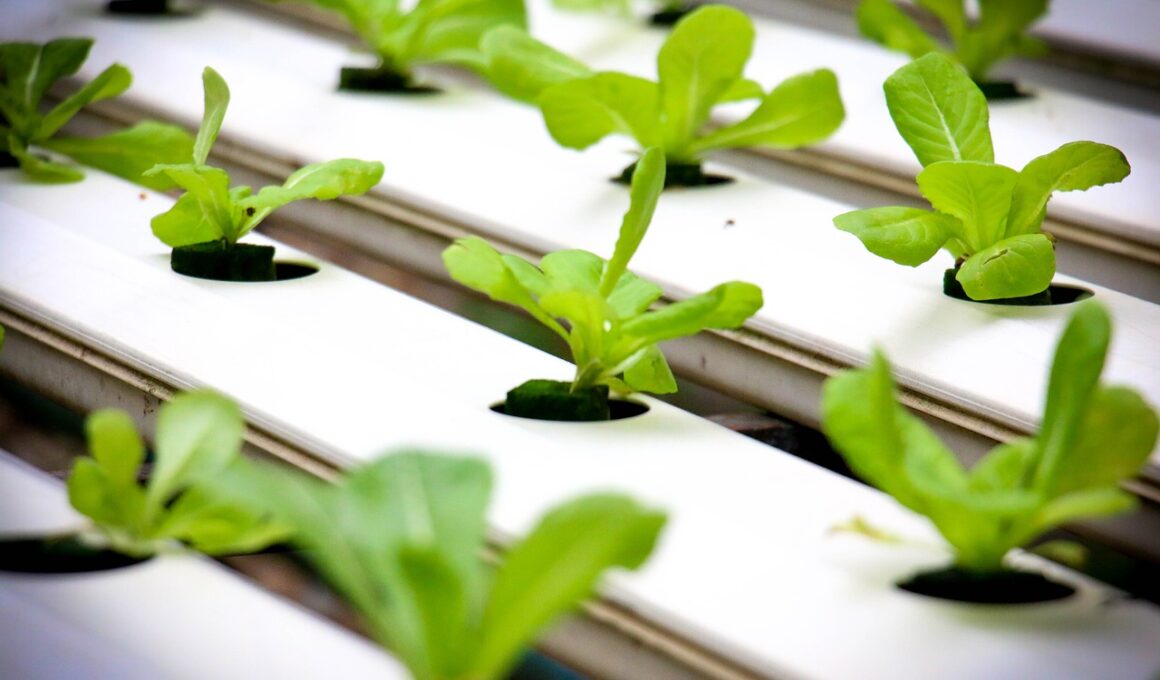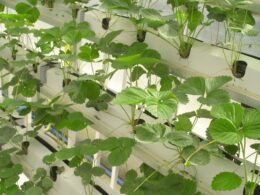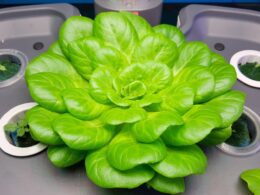Are you considering starting a hydroponic garden, but unsure if you need to filter your water? The answer is yes, you should filter your water for hydroponics.
Water quality plays a crucial role in the overall success of your hydroponics system. Without proper filtration, water can contain harmful impurities such as chlorine, heavy metals, and pesticides that can stunt plant growth or even lead to plant death. Additionally, unfiltered water can introduce harmful bacteria and algae into your system, creating an ideal environment for disease and pests.
In this article, we’ll explore the benefits of water filtration for hydroponics, the different types of filtration systems available, and what factors to consider when choosing the best option for your needs.
So sit back, relax, and let’s dive in.
Understanding Hydroponics and Water Quality
Let’s dive into the world of hydroponics and explore the impact of water quality on your plants’ growth and health. Hydroponic systems are designed to provide the necessary nutrients for your plants to grow without soil. This means that the water composition is crucial for the success of your hydroponic garden.
The right balance of minerals and nutrients in the water is essential for the plants to develop properly. The water composition in hydroponics is different from traditional soil-based gardening. In hydroponics, the water is the only source of nutrients for your plants. It’s essential to ensure that the water is clean and free from any contaminants that can harm your plants.
Contaminants such as heavy metals, pesticides, and other pollutants can accumulate in the water and have adverse effects on your plants’ growth and health. Filtering water for hydroponics is an effective way to ensure that your plants receive the right balance of nutrients without any harmful contaminants.
A good water filtration system can remove impurities and contaminants from the water, making it safe and healthy for your plants. By filtering your water, you can help your hydroponic garden thrive and produce healthy, vibrant plants. So, don’t forget to filter your water before using it in your hydroponic system.
Benefits of Water Filtration for Hydroponics
By using a water filtration system for your hydroponic setup, you’ll ensure that your plants receive the purest and most beneficial water possible. The benefits of water filtration for hydroponics are numerous.
First and foremost, water filtration removes impurities and contaminants that can harm your plants. This includes chlorine, heavy metals, and pesticides that may be present in tap water.
In addition to removing harmful substances, water filtration also helps to maintain pH and nutrient levels in your hydroponic system. Clean water means that your plants will be able to absorb nutrients more efficiently, leading to healthier and stronger growth.
Water filtration also helps to prevent clogs and buildup in your hydroponic system, which can lead to reduced water flow and decreased plant growth.
Given the importance of water quality in hydroponics, investing in a water filtration system is essential for any serious grower. Not only will it help to ensure the health and growth of your plants, but it will also save you time and money in the long run by preventing issues with clogs and buildup.
So if you want to give your hydroponic setup the best chance of success, be sure to prioritize water filtration.
Are Clay Pebbles Necessary for Filtration in Hydroponics?
Clay pebbles in hydroponics play a crucial role in filtration. These tiny, porous balls absorb excess moisture while ensuring proper aeration for root health. By trapping impurities and acting as a mechanical filter, they enhance the quality of the nutrient solution. Additionally, the pebbles provide stability to plant roots, making them an essential component in hydroponic systems.
Types of Water Filtration Systems
Get ready to upgrade your hydroponic setup with the different types of water filtration systems available. Using filtered water will not only ensure that your plants are getting the purest form of water but also prevent any harmful substances from entering your system.
There are two popular types of water filtration systems for hydroponics: reverse osmosis and activated carbon. Reverse osmosis is a process that removes impurities and minerals from water by pushing it through a semipermeable membrane. This will result in pure water that is free from any contaminants that might harm your plants. Reverse osmosis systems are efficient and can remove up to 99% of impurities from water.
Activated carbon filters work by absorbing impurities and chemicals from water through a process called adsorption. This means that the impurities stick to the surface of the carbon filter, and the clean water passes through. Activated carbon filters are great for removing chlorine, pesticides, and herbicides from water.
Incorporating a water filtration system into your hydroponic setup is a smart move. Not only will it ensure that your plants are getting the purest form of water, but it will also prevent any harmful substances from entering your system. Consider investing in either a reverse osmosis or activated carbon filter to ensure that your hydroponic garden is the best it can be.
Factors to Consider When Choosing a Water Filtration System
If you want to ensure that your plants are getting the cleanest water possible, it’s important to consider various factors when choosing a water filtration system.
One important factor to consider is the cost effectiveness of the filtration system. Some filtration systems can be quite expensive, but there are also cost-effective options available that can still provide high-quality filtration. When choosing a system, it’s important to balance the cost with the effectiveness of the filtration.
Another factor to consider when choosing a water filtration system for hydroponics is the environmental impact of the system. Some filtration systems use chemicals or have a high energy consumption, which can have a negative impact on the environment. It’s important to choose a filtration system that is environmentally friendly and sustainable.
There are many options available that use natural methods of filtration, such as activated carbon or reverse osmosis, which can provide high-quality filtration without harming the environment.
Overall, choosing the right water filtration system for your hydroponics system is crucial for the health and growth of your plants. By considering factors such as cost-effectiveness and environmental impact, you can choose a system that provides high-quality filtration while also being sustainable and affordable.
With the right filtration system, you can ensure that your plants are getting the cleanest and healthiest water possible.
Maintenance and Monitoring of Water Quality
Maintaining and monitoring water quality is essential for ensuring the optimal growth and health of your hydroponic plants. With hydroponic systems, the water is the plant’s only source of nutrients, which means that any contaminants can quickly harm their growth.
To keep your plants healthy, you need to perform regular water quality testing using different testing methods, such as pH and electrical conductivity (EC) meters. In addition to testing, it’s also crucial to troubleshoot any issues that may arise with your water quality.
Common problems include algae growth, which can be resolved by adding hydrogen peroxide, and clogged filters, which can be cleaned or replaced. Regular maintenance can help prevent these issues, and it’s important to address them promptly to avoid any damage to your plants.
Overall, maintaining and monitoring your hydroponic water quality is an ongoing process that requires attention and care. By regularly testing and troubleshooting any issues, you can ensure that your plants receive the necessary nutrients to thrive and grow. So, make sure to stay vigilant and keep your hydroponic system running smoothly for a bountiful harvest.
Frequently Asked Questions
Can I use tap water for hydroponics without filtering it?
You can use tap water for hydroponics without filtering it, but it’s important to consider the quality of your tap water. Tap water often contains chemicals like chlorine and fluoride, which can harm your hydroponic plants.
To ensure that your plants receive the proper nutrients, it’s recommended to use a hydroponic nutrient solution. However, if you’re using tap water, it’s best to let it sit for at least 24 hours to allow the chlorine to dissipate.
If you’re concerned about the quality of your tap water, you may want to consider investing in a filter to remove any harmful contaminants. Ultimately, the choice to filter your water for hydroponics depends on the quality of your tap water and the needs of your plants.
What are the disadvantages of using unfiltered water in hydroponics?
Using unfiltered water in hydroponics has both pros and cons. On the one hand, it’s convenient and can save you time and money. However, the health risks of using unfiltered water in hydroponics are significant.
Tap water can contain harmful chemicals, heavy metals, and bacteria that can harm your plants and even pose a risk to your health. For example, chlorine and chloramine, commonly found in tap water, can kill beneficial bacteria and fungi in your hydroponic system, leading to poor plant growth and even disease. Additionally, heavy metals like lead and copper can accumulate in your plants, leading to potential health risks if consumed.
To ensure the safety and health of your plants and yourself, it’s best to filter your water before using it in hydroponics.
Are there any alternatives to water filtration systems for hydroponics?
If you’re looking for alternatives to filtration systems for hydroponics, there are several DIY filtration methods that you can try. One option is to use activated carbon, which can remove impurities and improve water quality.
Another option is to use a UV sterilizer, which can kill harmful bacteria and viruses in the water.
Additionally, you can try using natural filtration methods, such as adding plants or algae to your system. This can help to absorb and filter out impurities.
While these alternatives may not be as effective as a professional filtration system, they can still help to improve the quality of your water and keep your plants healthy.
How often should I check the water quality in my hydroponic system?
To maintain a healthy hydroponic system, it’s important to regularly check the water quality. Water quality testing frequency can vary depending on the size of your system and the type of plants you’re growing, but a good rule of thumb is to test at least once a week.
pH monitoring is especially important, as even small fluctuations can have a big impact on plant growth. It’s best to keep the pH between 5.5 and 6.5 for most plants.
By regularly monitoring and adjusting the water quality, you can ensure that your plants stay healthy and productive.
Can I use a water filtration system designed for aquariums in my hydroponic system?
Using a specialized hydroponic water filtration system has many benefits for your hydroponic system. It ensures that your plants receive clean water that’s free from harmful chemicals, bacteria, and other contaminants that can harm your plants or reduce their growth.
Freshwater and saltwater aquarium filtration systems may seem like a cheaper alternative, but they’re not designed to meet the specific needs of hydroponic plants. They may not effectively remove all the contaminants found in hydroponic systems and may even introduce new ones.
Therefore, it’s important to invest in a specialized hydroponic water filtration system to ensure the health and safety of your plants.
Conclusion
So, do you need to filter water for hydroponics? The answer is yes.
Water quality is crucial in hydroponics, as the plants rely solely on the nutrients and water in the system. Any impurities or contaminants in the water can lead to poor plant growth and even death. Therefore, investing in a proper water filtration system is necessary for a successful hydroponic setup.
Not only does water filtration improve plant health, but it also prevents clogs and damage to the hydroponic system’s components. There are various types of water filtration systems available, from basic sediment filters to reverse osmosis systems.
When choosing a filtration system, consider factors such as the size of your setup, the type of plants you are growing, and the source of your water. Regular maintenance and monitoring of water quality are also essential to ensure the system continues to function properly.
By filtering your water, you can ensure that your hydroponic plants receive the cleanest and healthiest water possible, leading to optimal growth and yield.








